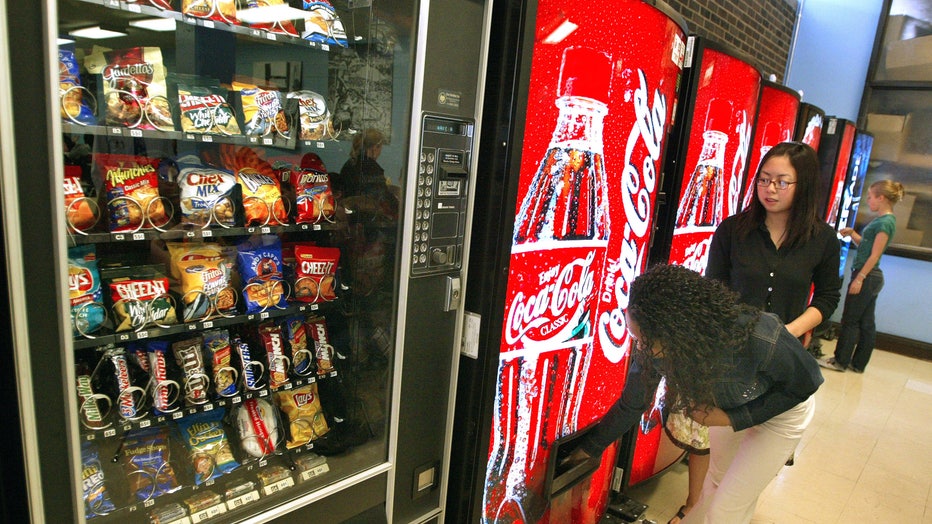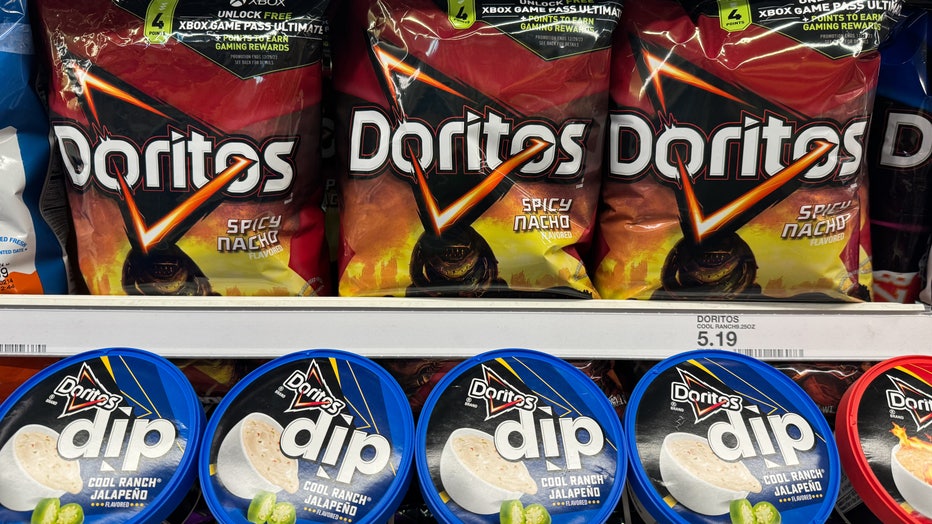Americans eat an extra meal a day from too much snacking, study finds

Man to eat Taco Bell for 30 days for health experiment
Sam Reid talks with FOX Television Stations about his health experiment and love for Taco Bell.
Americans are snacking so much, they’re eating a meal’s worth of calories a day in snack foods, a new study concludes.
Researchers from The Ohio State University analyzed data from surveys of more than 20,000 people and found that Americans averaged about 400 to 500 calories in snacks a day with little nutritional value. That’s typically more than what they ate at breakfast, according to a press release from the university.
"Snacks are contributing a meal’s worth of intake to what we eat without it actually being a meal," said senior study author Christopher Taylor, professor of medical dietetics in the School of Health and Rehabilitation Sciences at The Ohio State University. "You know what dinner is going to be: a protein, a side dish or two. But if you eat a meal of what you eat for snacks, it becomes a completely different scenario of, generally, carbohydrates, sugars, not much protein, not much fruit, not a vegetable. So it’s not a fully well-rounded meal."

Americans are snacking a meals worth of unhealthy foods, a new study found (Photo by Tim Boyle/Getty Images)
Researchers looked at data from 23,708 U.S. adults over 30 years old who had participated in a 10-year survey. The survey recorded daily not just what, but when, they ate their food.
The participants were put in four groups according to their glucose levels: nondiabetes, prediabetes, controlled diabetes and poorly controlled diabetes.
MORE: Cancer risk could increase with consumption of certain foods and drinks, study finds
Those who were controlling their type 2 diabetes ate fewer sugary foods and snacked less overall than people without diabetes and those considered prediabetic.
Snacks made up an average of 19.5% and 22.4% of total energy intake – "while contributing very little nutritional quality," researchers said.
The study found Americans eat more snacks that are high in carbohydrates, fats and sugar than they do healthy proteins, fruits, grains and vegetables. Alcoholic beverages and sugar-sweetened drinks are consumed as snacks more than milk and healthier options.

Snacks like these make up roughly 20% of Americans' total dietary intake, a new study says (Photo by Jakub Porzycki/NurPhoto via Getty Images)
"We need to go from just less added sugar to healthier snacking patterns," Taylor said in a prepared statement. "We’ve gotten to a point of demonizing individual foods, but we have to look at the total picture. Removing added sugars won’t automatically make the vitamin C, vitamin D, phosphorus and iron better. And if we take out refined grains, we lose nutrients that come with fortification.
"When you take something out, you have to put something back in, and the substitution becomes just as important as the removal," he continued.
MORE: Colorado poised to ban 'fatphobia' in workplace, housing
Taylor said when planning snacks, it’s important to look at the day’s total dietary picture to see which snacks will help to fulfill your nutritional needs.
"Especially during the holidays, it’s all about the environment and what you have available, and planning accordingly. And it’s about shopping behavior: What do we have in the home?" he said.
"We think about what we’re going to pack for lunch and cook for dinner. But we don’t plan that way for our snacks. So then you’re at the mercy of what’s available in your environment."

